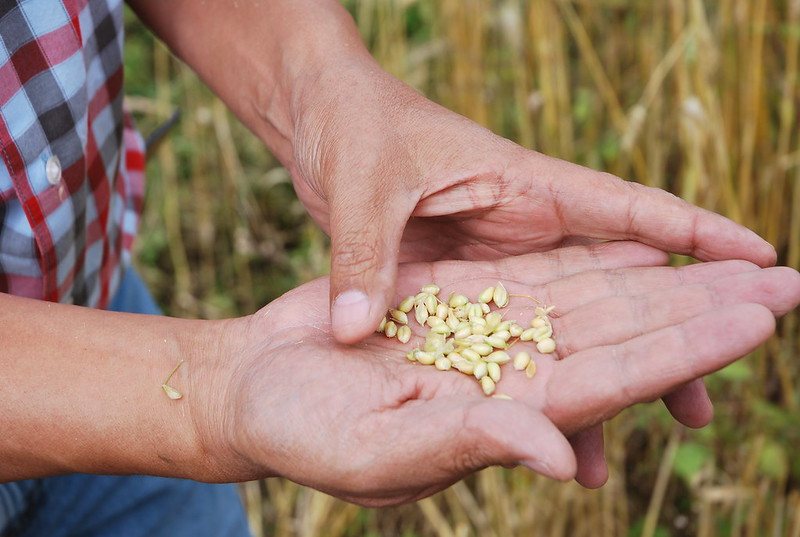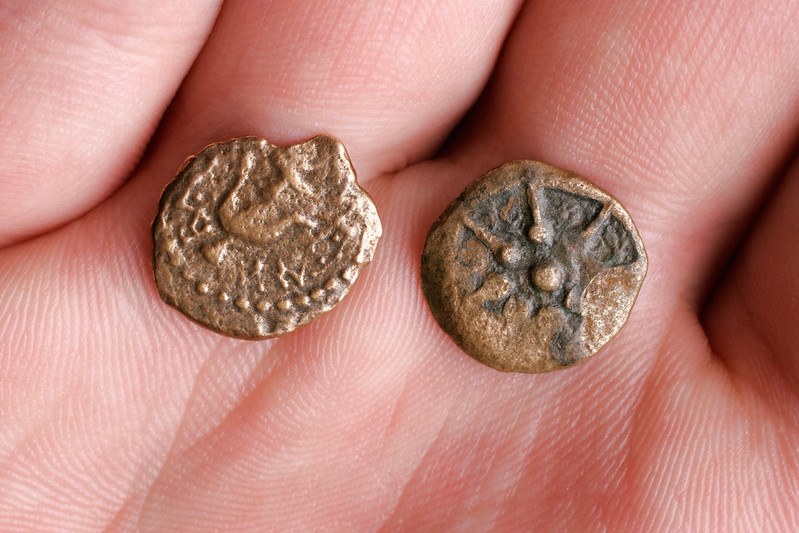Faithfulness Over Fruit
By Carmen Watson

Upper School Principal Carmen Watson earned her BA from Rice University in History and French and her MEd from Covenant College in Curriculum and Instruction. She has served in various roles at PCS over the past 15 years, including Director of Instruction and French teacher.
God calls us to faithfulness in our Christian walk, but so often, we focus on and pursue the fruit—the results—instead. Fruit is easier to see and easier to measure. I can compare my fruit to another’s to see how I measure up, to check my progress, to evaluate my performance, to prove my worth. The problem is that God says we are not measured by our fruit. If I use fruit as my measure, I am missing the mark. Scripture teaches us how to focus on faithfulness over fruit.
Let us show you how Providence Classical School can make a difference in the life of your child and your family!
God tells us over and over in scripture that our worth is not in what we produce or acquire, but we struggle to accept this. Jesus devoted a large part of His Sermon on the Mount to this struggle. We are not to store up treasures—awards, titles, achievements—on earth but instead to pursue heavenly treasure, “for where your treasure is, there your heart will be also” (Matthew 6:21).
Jesus tells us what we already know: “No one can serve two masters…You cannot serve both God and money” (Matt. 6:24). Or grades, or recognition, or the free-throw record, or acceptance to your favorite college, or the high score on your video game, or bragging rights for the best behaved kids, or… You get the picture. When we pursue these things—the fruit—we get distracted. We lose sight of who God is and who we are. We forget that goals are good but godliness is better.
“Grain of INIAP Vivar 2010” by CIMMYT is licensed under CC BY-NC-SA 2.0.
God calls us to pursue faithfulness over fruit because faithfulness is all that we can give.
God gives the growth, and God gives the fruit, in His time, in His measure. Remember the parable of the sower? When the seed of the word is sown on good soil, “they hear the word and accept it and bear fruit, thirty, sixty, and a hundredfold” (Mark 4:20). All of the good soil hears the word and accepts it and bears fruit, but the quantity and character of the fruit is not in the soil’s control. All of this soil was good soil, whether it produced thirty or sixty or a hundredfold.
As Paul says in 1 Corinthians 3:6-7, “I planted, Apollos watered, but God was causing the growth. So then neither the one who plants nor the one who waters is anything, but God who causes the growth…but each will receive his own reward according to his own labor.” Our faithful labor, not the fruit it produces, is what God measures and honors.
Shortly later in the same passage, Paul talks about the importance of offering valuable labor as we build on the foundation of Jesus Christ: “Now if any man builds on the foundation with gold, silver, precious stones, wood, hay, straw, each man’s work will become evident.” (1 Cor. 3:12-13) Again, the focus is not on the end result—the structure achieved by building—but on the quality of the labor and materials offered to God.
God draws the plans, directs the work, and is completely in charge of the final product. We are responsible for bringing our best to Him and trusting Him to do what is best with it. We do not get to control or boast in the results.
Motivation is key.
Even as I write this, I struggle against the temptation to desire the fruit and make that my primary pursuit. I want people to be encouraged (that’s good). I want them to be impressed with what I write (not as good). I want them to be impressed with me (also not good). And if I’m honest, I really want them to come up to me and tell me how impressed they are (yep, not good).
Now, don’t get me wrong. Expressing gratitude to someone for their hard work and faithfulness is great, and God calls us to encourage one another and even to “spur one another on to love and good deeds” (Hebrews 10:24). We all need encouragement and expressions of love and affirmation.
The problem is in my motivation. Why did I write this article? Partly because it’s part of my job to write blog posts from time to time, and I want to be faithful to do my job to the best of my ability. But why did I write this particular article on this particular subject? Because in my job, I so often see—in myself and others—a striving for fruit that is killing us.
We want the A and pursue it at all costs, sometimes to the detriment of our physical and emotional health or our relationships with family, friends, and teachers. We want to win the game or the championship, so we criticize ourselves and our teammates for every little mistake or missed objective. We want our boss or our colleagues to be impressed with what we produce and accomplish, so we push for perfection to the point of stress and exhaustion.
These things that we pursue are not necessarily bad.
It is not bad to make good grades or to win championships or to be good at your job. The problem is what the pursuit can do to us, individually and collectively. James points out the dangers to the Christian community when we pursue fruit first: “What causes fights and quarrels among you? Don’t they come from your desires that battle within you?” (James 4:1) When we make fruit the goal, it pits us against one another. Instead of working together to advance the kingdom of Christ by using and celebrating our different gifts (1 Cor. 12), we find ourselves in competition against one another, envious of the success of others and critical of our own failures.
Jude talks about people who have crept into the church unnoticed and are turning others astray (Jude 1:4). He says that “these people are grumblers and faultfinders; they follow their own evil desires; they boast about themselves and flatter others for their own advantage” (Jude 1:16). Ouch. If I am honest, I can see ways in which my pursuit of fruit causes me to grumble when I don’t get it and to find fault in people who get in my way. I recognize the temptation to boast about my accomplishments and to flatter people who can help me get what I want. It’s ugly.
Paul reminds us in 1 Corinthians 13 that all of these accomplishments are worthless if they are not undergirded by a life of love for one another. If I am the most eloquent speaker or writer, if I am the wisest or most knowledgeable scholar, if I am the most generous, giving, self-sacrificing person but do not have love, I am nothing (1 Cor. 13:1-3). This is why God calls us to faithfulness over fruit.
Pursuit of fruit can stress us out and steal our peace and joy and can destroy our Christian community.
Jesus tells us instead to “seek first his kingdom and his righteousness, and all these things will be given to you as well” (Matt. 6:33). Jesus is not saying that God will give us the A or the championship win or the job promotion or the college acceptance. He may, but that’s not the point. The point is that faithfulness will satisfy us far more and far longer than the pursuit of fruit.
If fruit is our pursuit, we are often disappointed. How many of us have spent every waking moment preparing for something only to feel a bit deflated when it was over? If you achieved the goal for which you were working—won that championship, got that grade, received that promotion—you probably celebrated and felt elated for a while, but a few months or weeks or maybe even days or hours later, you were on to the next thing.
If you live your life in pursuit of fruit, even good fruit, you will always be looking for the next thing, the next goal, the next milestone. And when you achieve it, the cycle repeats. No fruit will ever satisfy, will ever be enough.
Focus on being faithful in the moment.
If your focus is on faithfulness instead of fruit, each day is its own milestone. My goal today is to be better than I was yesterday. I strive to love my neighbor more, to honor God with my words, to work with all my heart as if working for the Lord (Colossians 3:23). Even though these daily efforts may produce good fruit, God calls us to focus on and even boast in knowledge of Him instead: “This is what the Lord says: ‘Let not the wise boast of their wisdom or the strong boast of their strength or the rich boast of their riches, but let the one who boasts boast about this: that they have the understanding to know me, that I am the Lord, who exercises kindness, justice and righteousness on earth, for in these I delight,’ declares the Lord” (Jeremiah 9:23-24).
Properly ordered, faithfulness produces fruit because “we are God’s handiwork, created in Christ Jesus to do good works, which God prepared in advance for us to do. (Ephesians 2:10). When we live a life worthy of the Lord and please him in every way, we will bear fruit in every good work and grow in the knowledge of God (Colossians 1:10). If we pour our energy into loving Jesus and being faithful to Him daily, the fruit will take care of itself.
Focus on a thirst for holiness.
In 1999, the group Sonicflood put out a song called “Holiness” that has been playing on repeat in my mind as I have thought about and written this blog post. It seems a fitting conclusion. If we desire to follow Christ, to love and serve Him, to do the “good works which He prepared beforehand” for us (Eph. 2:10), then we must pursue faithfulness over fruit. Faithfulness is what I long for. Faithfulness is what I need.
Holiness, holiness is what I long for
Holiness is what I need
Holiness, holiness is what You
Want from me
So, take my heart and form it
Take my mind and transform it
Take my will and conform it
To Yours, to Yours, oh, Lord
Faithfulness, faithfulness is what I
Long for
Faithfulness is what I need
Faithfulness, faithfulness is what
You want from me
Brokenness, brokenness is what I
Long for
Brokenness is what I need
Brokenness, brokenness is what
You want from me
As Jesus looked up, he saw the rich putting their gifts into the temple treasury. He also saw a poor widow put in two very small copper coins. “Truly I tell you,” he said, “this poor widow has put in more than all the others. All these people gave their gifts out of their wealth, but she out of her poverty put in all she had to live on.”
Luke 21:1-4
Read more blog posts about the Christian Faith and how PCS partners with parents to spread the good news of Jesus Christ with students.











